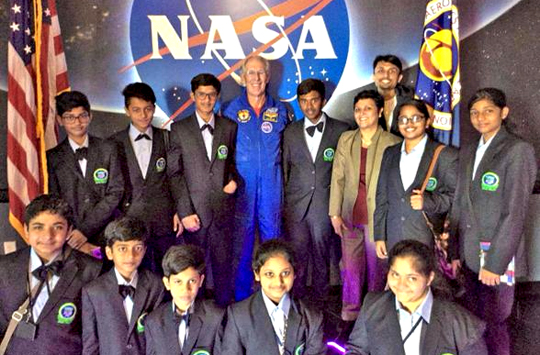Udupi, Apr 10: A group of 11 students of Shiroor-based Green Valley National School and PU College and their chief coordinator are on a visit to the John F. Kennedy Space Centre, Port Canaveral, Orlando, U.S., where they are participating in a space camp for international students.

In a press release issued here on Saturday, John Mathew, principal of Green Valley National School and PU College, said that the visit of the students to Port Canaveral, which began on April 1, will conclude on April 13.
The students will also be visiting the Rocket Garden, go for a space shuttle launch experience and visit the space museum. They will also have the privilege of having lunch with astronauts and get knowledge on space flights and missions.
Besides these, they will be participating in a lot of fun-filled activities during their stay.
The 11 students from the institution participating in the camp are: Fathima Haifa, Sara Ruknaddin, Shanthika, Fouziya Beegum, Adam Ruknaddin, Glen Furtado, Mohammed Zubair, Shahid Badiadka, Adil Sinhan Beary, Mohammed Ruwaif Askeri and Mohammed Basha. The coordinator Whilhelmina Mathew is with the group, the release added.





Comments
Orlando? this is awesome. I wish I was still in this institution :(
East or West Green Valley is best in class,
good going bright future of india, all the best to everyone.
each and every school must take their students to nasa, there this children will think of their future,
The Name we can trust Green Valley Institution, for bright future of your children take admission in this institution,
All the best students, good opportunity given by green valley institution for their students.
Add new comment